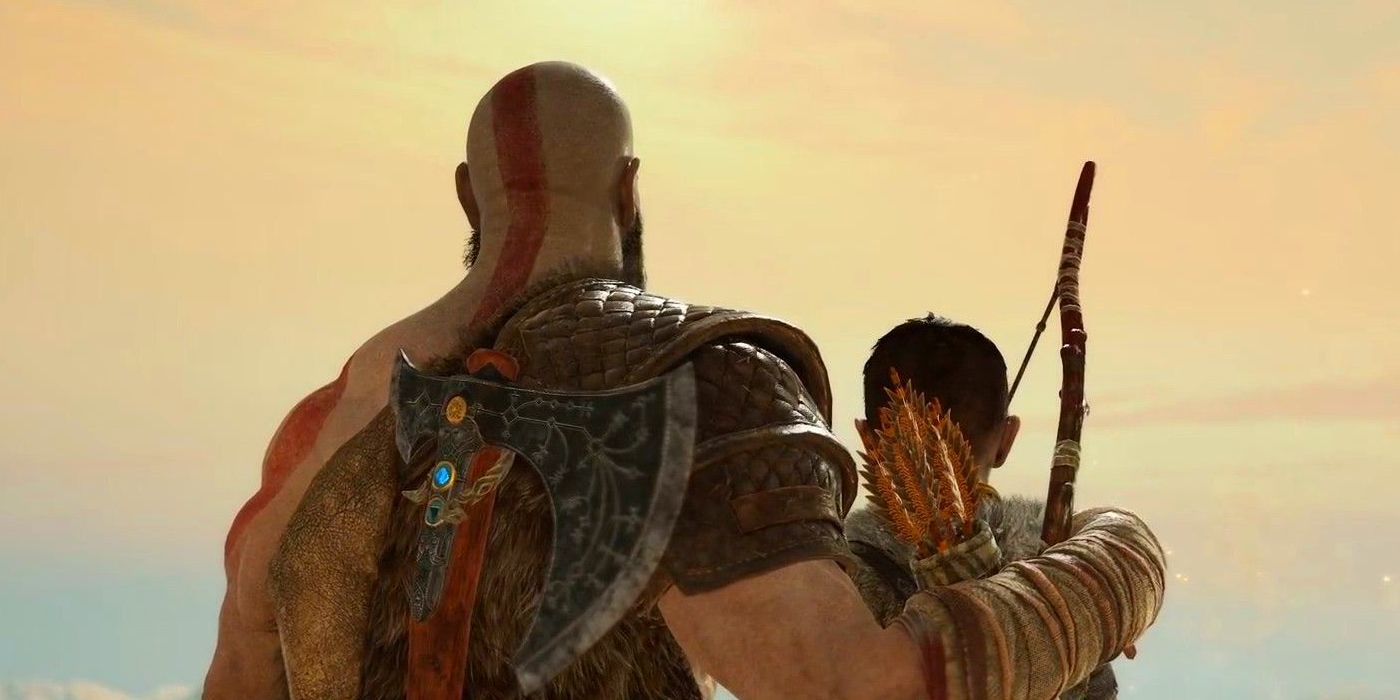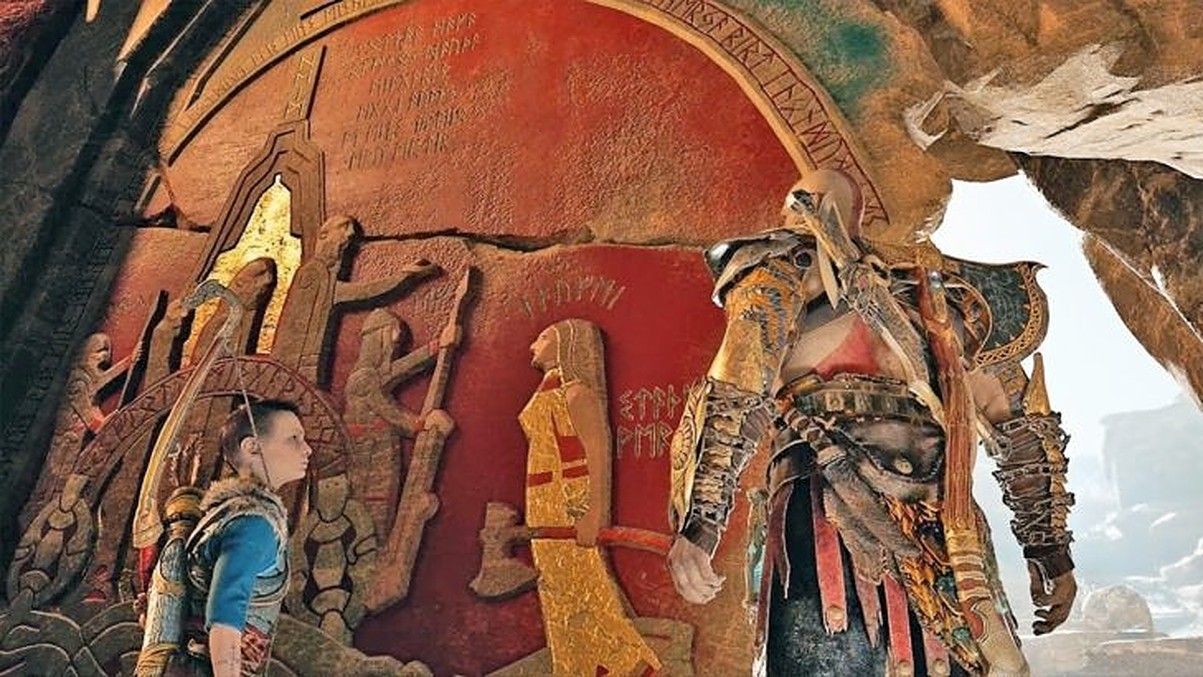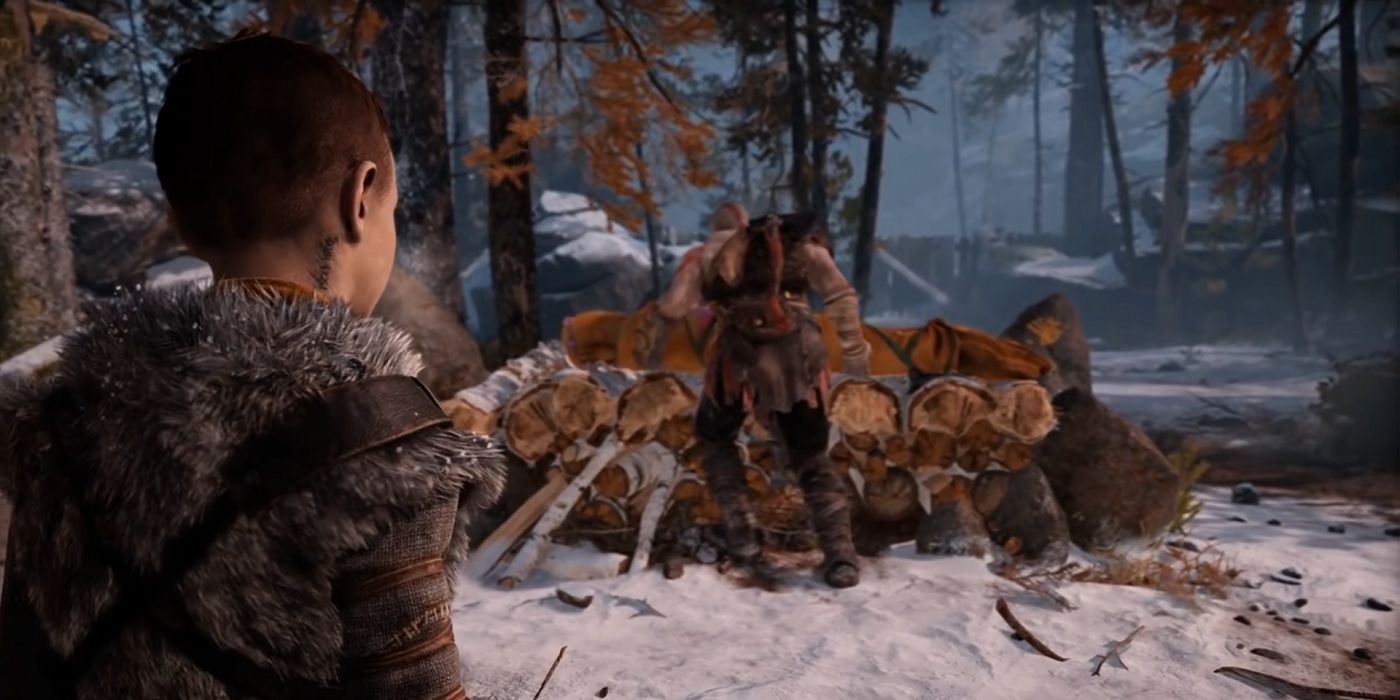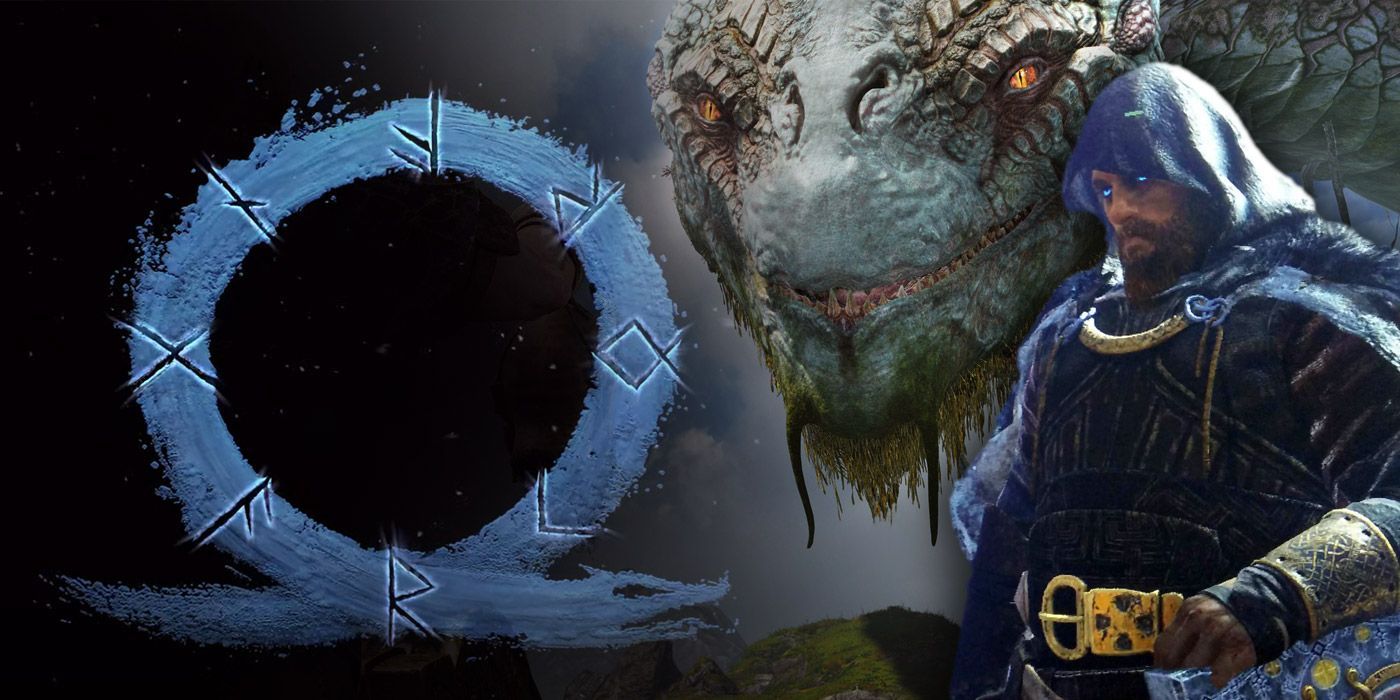The death of Faye, Kratos' second wife and the mother of Atreus, is the inciting incident of 2018's God of War. A powerful warrior and a master manipulator, many of the events that unfold over the course of the game all turn out to be part of Faye's plan.
Based on what's known about Faye's role in events so far, the character could continue to be highly influential in God of War's upcoming Ragnarok sequel. Here are all the reasons that Faye may still have a big role to play during Ragnarok, even if she is never seen directly.
Faye In Norse Mythology
Faye's real name is revealed to be short for Laufey, who is the mythological mother of Loki in Norse mythology. As a Jotunn, she chose to live as a mortal in Midgard, though still possessed considerable strength and powerful magical abilities. In the myths, Loki's father is another Jotunn named Farbauti, which is also the name that Kratos is identified by on the Jotunheim mural.
Despite this, Loki is called Loki Laufeyjarson — Loki, son of Laufey — in the Poetic Edda. Usually Norse names would reference the father as in Thor Odinson, suggesting that Loki's connection to his mother is incredibly unique in the myths. This connecti0n could be expanded upon further in the sequel.
Faye In God Of War
Faye dies before the events of 2018's God of War, and the plot is kicked off by her request that Kratos and Atreus scatter her ashes on the highest peak in the Nine Realms. She also left Kratos her axe, the Leviathan Axe, which he uses throughout most of the game. By the end of the story, it's clear that Faye's plan extended far beyond a request regarding her final resting place.
By telling Kratos to cut down a series of marked trees, Faye ensured that the protective spells around the woods that her family lived in were destroyed. This in turn alerted the Aesir gods, who had been hunting her. Faye was one of very few Jotnar to evade Thor, who was instructed to slaughter the giants after Odin was banished from their realm of Jotunheim for trying to steal their knowledge of the future.
By alerting the gods after her death, Faye manipulated the Aesir into thinking she was still alive. Odin sent Baldur to track her down once and for all, with Faye ultimately manipulating events so that Kratos and Atreus would make it to Jotunheim and find the Jotunheim mural. The mural not only revealed Atreus' secret name, Loki, but also roughly showed the events of Ragnarok, the death of the Norse gods. Some of the events depicted, such as the pair's meeting with the World Serpent, had already taken place. As such, Faye appears to have manipulated events such that Ragnarok was put into motion, ultimately taking her revenge against the Norse gods from the grave.
Faye In Ragnarok
There are a few other ways that Faye could be involved in God of War's Ragnarok sequel beyond being one of the instigators of Ragnarok. Tyr, the Norse god of war, was the one who helped Faye hide the gate to Jotunheim to prevent Odin from being able to return. Though, Tyr himself was still able to get to Jotunheim using the Unity Stone. Despite being the god of war, Tyr is mentioned as being a natural pacifist and a diplomat who helped Faye, due to the guilt he felt over the slaughter of her people by the Aesir.
It isn't known if Odin had Tyr killed for his treachery or simply imprisoned, only that the All-father grew suspicious of the god of war and ultimately took action. Which is why players never met Tyr in the 2018 game. It seems likely, however, that Tyr will make an appearance during Ragnarok, which is when he is destined to die in Norse mythology. If he does make an appearance, it's likely that he will be able to reveal more about Faye, her plans, and how they have continued to affect events after her death.
It's also possible that time travel will be involved in God of War's Ragnarok sequel, which may allow Faye to appear directly. While things could simply be different in the God of War universe, in the myths Loki is the father of the World Serpent and Fenrir; the wolf who bites off Tyr's hand and ultimately devours Odin during the final battle of Ragnarok.
God of War 2 involved a time travel plot, so it's far from impossible that Atreus might go back in time at some point to set other parts of Ragnarok into motion, including fathering these important characters. Ragnarok itself already deals with a semi-cyclical idea of time in the myths, which could make a time travel plotline an interesting interpretation of that aspect of the mythology.
Atreus appears to have inherited a lot from Faye, and it's also possible that as he begins to grow in power and truly realize his potential as the Norse god of mischief, more might also be revealed about Faye over the course of the next game. Faye is described in the last game as being the last Guardian of the Jotnar left in Midgard, but other beings who are defined as Jotnar in the myths like the World Serpent do make an appearance in the game and have big roles to play in Ragnarok. This also makes some sort of time manipulation seem possible, though it is far from confirmed.
Laufey the Just was a thorn in the side of the Aesir as they waged war against the giants, avoiding ever facing Thor in direct combat while manipulating events to make his task as difficult as possible. Based on just how much was revealed to be part of her plan in the last game, it seems very likely that far more will be revealed about her goals over the course of Ragnarok as Kratos, Atreus, and the Norse gods face down fate itself.
A sequel to God of War is currently in development for PS5.




